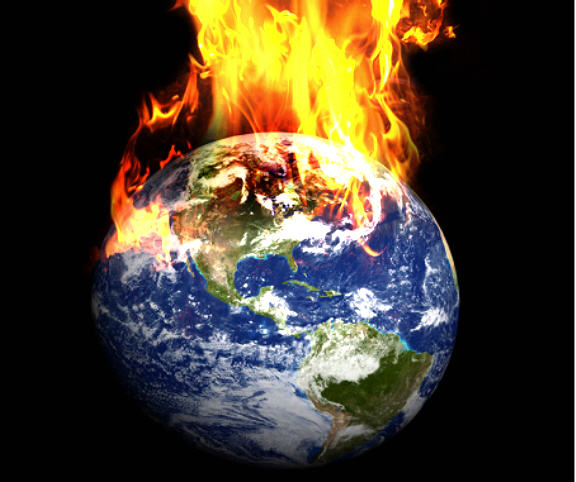from the EU to China and Venezuela
By Antonia Colibasanu, Blogactive.eu
As the summer ends in Europe, we’re still seeing new crises unfolding, with an interesting winter coming up. Ukraine will remain a constant preoccupation of the Europeans. Gaza, Iraq and Syria are also still in the news. And there are other global developments Brussels and the EU member states must consider in the upcoming weeks.
First, at home:
In August, we’ve seen uncertainty rising in Germany about the prospects of sustaining economic growth. In France and Italy, the other two major economies of the eurozone, the structural problems are not only causes of economic stagnation, but are also sparking new political crises that could translate into another spiral of socio-economic distress. While Italy’s poor economic performance has an impact on the Southeastern European economies, the size of the French and the German economies means they are affecting the whole EU28′s performance.
Notably, the French government fell after the former Economy Minister Arnaud Montebourg said that “France is the eurozone’s second-biggest economy, the world’s fifth-greatest power, and it does not intend to align itself with the excessive obsessions of Germany’s conservatives.” That indicates at least some elements of the French establishment’s sentiments about the political and economic decline of the country and Paris’ submission to Berlin’s policy designs, suggesting that the Franco-German alliance that has been basis of EU policy building is wobbling.
While we have seen indications of Franco-German disagreement over foreign policy, as with the Libya intervention in 2011 and over aspects of the response to the Ukraine crisis, evidence of two diverging on EU policies has really only emerged since France’s socio-economic crisis became more acute.
All these evolutions map out new centers of the EU political crisis, something that will have ramifications into the way the union — and/or its member countries — reshapes and adapts foreign policy while responding to the crisis abroad. And as the European Union is struggling to adapt to the new environment, indications have emerged of new crises that will affect the already-shaky global equilibrium.
Second, abroad:
New economic data released by China’s National Bureau of Statistics on Aug. 13 shows the supply of credit to the Chinese economy expanded in July at the slowest pace since October 2008, the month after Lehman Brothers filed for bankruptcy and the month before the Chinese government launched an economic stimulus program that sheltered China’s economy from the worst effects of the global financial crisis. Expanded credit creation has been one of the policies that Beijing implemented during the last six years to keep the economy on “life support” after the crisis that began in 2007-2008 brought the decades-long Chinese export boom cycle to a premature close. As a result of that policy, outstanding credit reached 251 percent of GDP in 2013 compared to 147 percent in 2008. The portion of outstanding nonperforming debt remains unclear.
The other solution Beijing adopted for diminishing the impact of the global crisis relates to investment, particularly toward urban real estate and transit infrastructure. Urbanization was indeed the growth engine in China between 2009-2011. However, while the construction sector hasn’t seen significant growth rates in recent years, it is in recent months that a backdrop of sustained and decidedly not policy-driven declines in home sales, home prices and housing construction activity across major Chinese cities has been observed.
That makes the news about the decline in demand for loans worrying. This is where we need to ask ourselves if the July statistics on credit supply is just another turn in the cycle of credit expansion and tightening that has come to characterize China’s economic policy of gradually reining in the investment boom of 2009-2010 that has been in place since late 2011, or is it the beginning of something different? In other words, does this news indicate that something in China’s underlying economic conditions has changed, and is that now forcing a more fundamental shift in the Chinese government’s core economic policy? As with every answer relating to China, the analysts’ answer is, “it’s complicated.”
The Europeans should also pay attention to what is coming out about the Chinese economic health to at least be prepared for negative effects that may follow if a fundamental shift in Chinese economic policy is underway. The reason Brussels should assess the situation is simple: interdependency. China is now the European Union’s second-largest trading partner behind the United States, while the European Union is China’s biggest trading partner. Moreover, negotiations over a comprehensive EU-China Investment Agreement have been launched in November 2013.
Elsewhere, another new crisis seems to evolving in Latin America. The Venezuelan opposition and student movements appear to be edging toward renewing anti-government protests. High inflation rates, food shortages and rampant crime were among the grievances voiced by protesters during the demonstrations early this year. Inflation has steadily risen over the past few months, to about 68 percent year-on-year in May 2014. Food shortages, which are spurred by declining domestic production, import bottlenecks, and a thriving domestic black market coupled with smuggling to Colombia, have continued across the county.
Since June this year, Venezuela has started to implement reforms aimed at turning around the country’s deteriorating position. Most of them have been enacted under one of the most important ministries in the country, the mines and energy ministry. Rafael Ramirez, who is also the president of state-energy company Petroleos de Venezuela, holds that portfolio. While the reforms were primarily intended to raise government revenue and ease the financial pressure on PDVSA, they have led to further protests. The late President Hugo Chavez secured public support through heavy social spending financed by PDVSA. Seeing the oil production falling and no practical means of raising it in the short term, Venezuela has begun cutting expenses wherever possible, despite the inherent risk of civil unrest.
Declining oil supplies will put short-term pressure on the smaller states in Latin America, including Nicaragua, Jamaica, the Dominican Republic and Haiti. In the long term, it will impact global oil markets. While the Europeans don’t see a direct connection between Venezuelan economic status and their own, the European Union will experience indirect effects from a higher price of oil, especially considering that the other, already “old” crisis in Ukraine and Gaza may have a similar outcome for global energy markets.



















